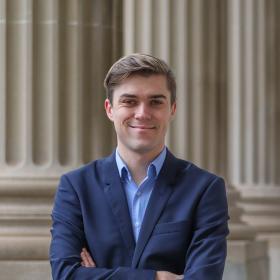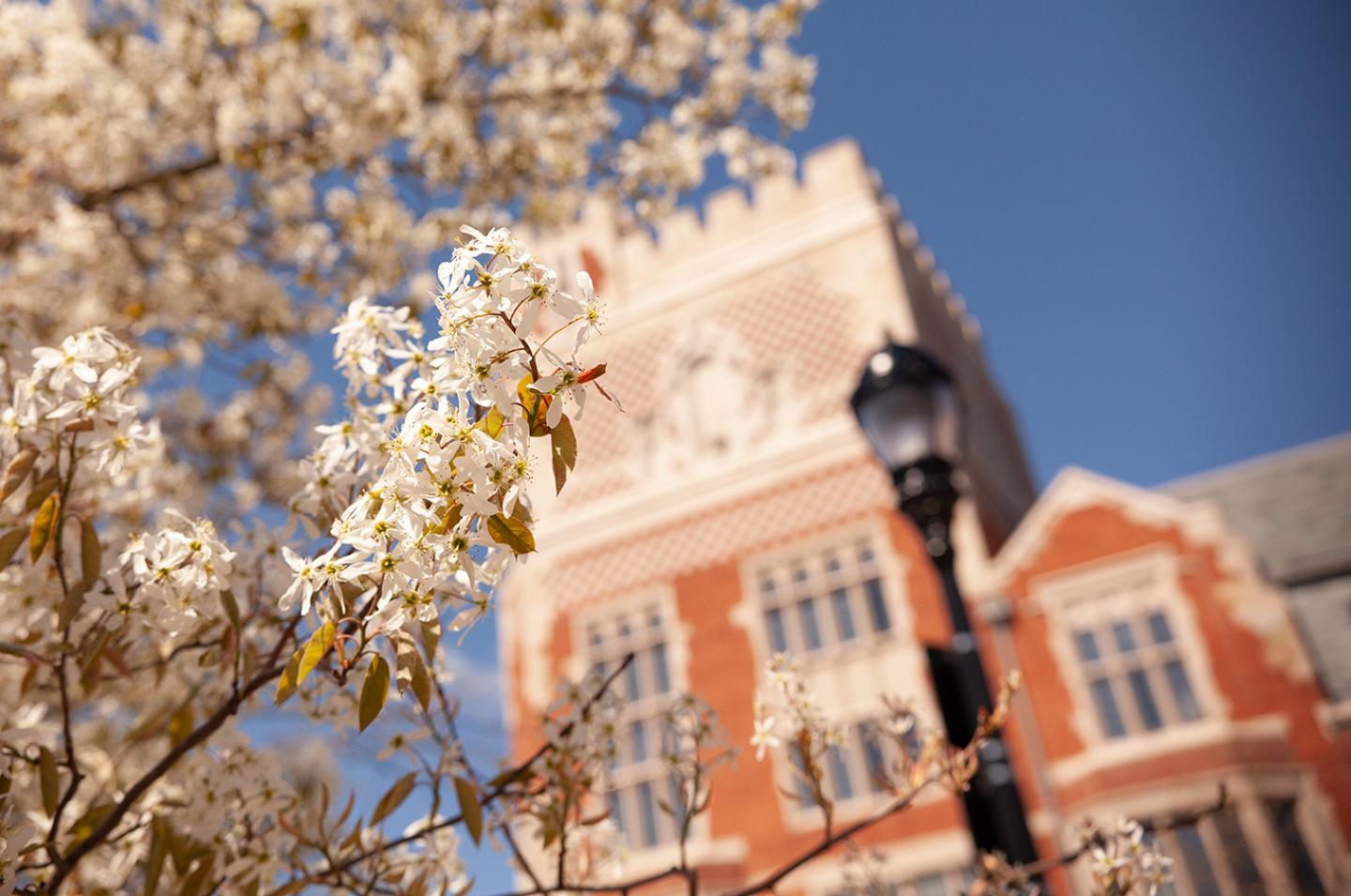



Patrik Haverinen BF ’25 had a plan: he was going to attend law school or study political science in his home country of Finland. But after a friend’s recommendation to check out the American liberal arts system and a summer program in California, he decided to take a chance and apply to universities in the United States.
“Very few American universities stood out to me in terms of generous financial aid to international students and interdisciplinary, liberal arts curricula,” Haverinen says. “I was very lucky to be accepted into one of those universities: Yale.”
Supporting Students, No Matter Their Home
Choosing to pursue his higher education in the United States was a leap of faith—one enabled by Yale’s extensive support for international students.
“I come from a single-parent household, and being able to access the incomparable educational resources at Yale without having to take out debilitating loans is really, really important,” Haverinen says. “Without financial aid, I would definitely not have been able to come to Yale.”
Haverinen shares that many people, especially from Europe, assume that higher education in America is only for the very well off. However, for Haverinen, a Yale education is more financially accessible than a tuition-free university back home.
“Although Finland has free education, it’s actually cheaper for me to go to Yale than it would be to attend school in Finland because I would have to pay for my housing and meals,” Haverinen says. “It’s not just that tuition can be covered at Yale, but you can get textbooks, assistance with flights home, and a place to live and eat. The financial aid is so thoughtful and ensures that Yale can be more accessible to all.”
Building Community
While Haverinen was nervous when he first came to campus, making friends going through similar experiences helped smooth his transition.
“International student orientation was a great starting point,” Haverinen says. “So many of the friends I’m closest with to this day are people I met during orientation. It’s so wonderful to have friends from all over the world.”
He also credits Benjamin Franklin College and the Office of International Students and Scholars with helping him acclimate.
“Community at Yale doesn’t just come from being part of a specific group,” Haverinen says. “It comes from a broader collective understanding that we’re all in this together. Because we live in such close proximity and everybody is so welcoming, it’s really easy to make friends regardless of where you come from.”
Still, acclimating to an American style of learning took some adjusting.
“Finnish people tend to be more reserved, and our education systems prioritize individual learning,” Haverinen says. “Getting used to putting myself out there in discussions and being in an environment that is so innately extroverted and social was a significant culture shock. But part of why I came to Yale was a desire to learn in a more collaborative environment, where insights from fellow students are valued just as much as lectures from professors. It’s a completely different kind of learning.”
A Global Education
Haverinen, a global affairs major, hopes to pursue a career in international politics through a multilateral organization or journalistic institution. A course on Ukraine taught by Timothy Snyder, the Richard C. Levin Professor of History, has been a particular standout, especially now that Haverinen has gotten to know more Ukrainian students at Yale.
“Even my parents were watching the lectures from home in Finland,” Haverinen says. “Learning about the crisis in real time and being able to have one-on-one office hours with instructors as esteemed as Professor Snyder has been an unparalleled experience.”
Haverinen has also contributed to research at Yale School of Management and is part of a larger group that hosted Ukrainian President Volodymyr Zelenskyy for a virtual address for the Yale community and the public. A Yale Journalism Scholar, he also represents his home country as a Fulbright Finland Grantee, leads TEDx Yale, and has taken on various mentorship positions on campus.
“My time at Yale has enabled me to take classes on everything from ethics and applied physics to French and artificial intelligence,” Haverinen says. “It’s been a beautiful environment for learning how to think before honing in on more specific, nuanced skills needed for a niche workplace.”
Haverinen hopes that his story encourages other international students to consider an education abroad.
“One of the most beautiful things about a liberal arts education, especially at Yale, is that you can really modify it to your liking,” Haverinen says. “Whatever you want to get out of a college education, you can get it. Nobody’s telling you what to do, which can be scary but is also deeply empowering. It’s a real opportunity to learn new things in a new environment and bring what you’ve learned back home.”
